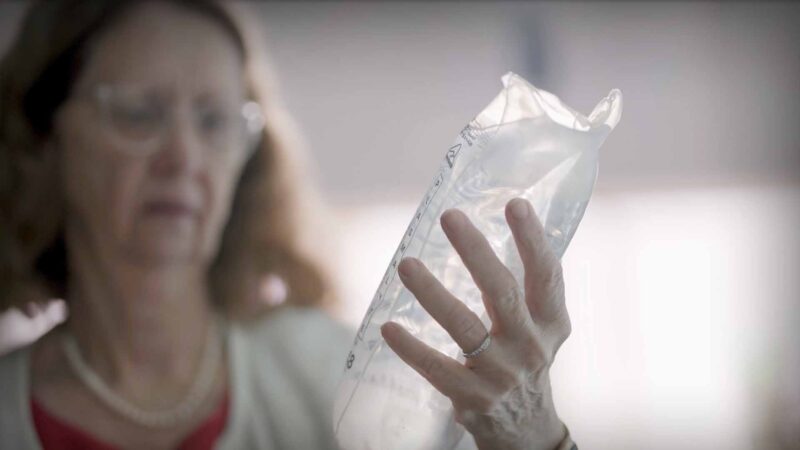RESEARCHER PROFILE
Dr Laura Klein, National Milk Research Leader
Australian Red Cross Lifeblood,
New South Wales
Australia
Dr Laura Klein is National Milk Research Leader at Australian Red Cross Lifeblood. Australian Red Cross Lifeblood is funded by Australian governments to provide life-giving blood, plasma, and transplantation and biological products.
Dr Klein works with clinicians and researchers across Australia to understand how donated breast milk can be used to improve outcomes for vulnerable babies. She’s passionate about generating evidence to improve the products and services that milk banks provide to donors and the families who receive donated breast milk.
Dr Klein has a PhD from Harvard University and is an Adjunct Research Associate in the Faculty of Pharmacy and Pharmaceutical Sciences at Monash University.
Australian Red Cross Lifeblood national milk service has already closed the gap in helping very preterm babies (born less than 32 weeks’ gestation) access donated breast milk. Currently they supply milk to more than 1,000 babies every year across New South Wales, South Australia, Queensland, and Tasmania.
Dr Klein is currently conducting Australian-first research that could potentially help thousands of babies in the future. Together with the University of Adelaide and South Australian Institute of Health and Medical Research Institute (SAHMRI), Australian Red Cross Lifeblood is conducting a randomised controlled trial at five sites in three states. exploring how donated breast milk may benefit babies born later than 32 weeks gestation when the mother’s own breast milk is unavailable.
Babies born 4 to 6 weeks before their due date (moderate to late preterm) often have trouble feeding and most need extra nutrition while breastfeeding is established.
Infant formula is regularly used as additional nutrition for pre-term babies, but it can contribute to complications, including feeding intolerance, increased need for IV fluids, interrupted breastfeeding, effects on weight gain and delayed hospital discharge.
Human milk is easier to digest than formula and protects babies against other serious diseases and infections. It has all the nutrients babies need for their growth and development.
In the trial, more than 2000 pre-term babies will participate in a donor breast milk trial funded by National Health and Medical Research Council (NHMRC) Clinical Trials and Cohort Studies (CTCS) Grants.
Mother’s own milk is a complex fluid shaped by interactions between a mum and her infant, while donated breast milk is something different. Donated breastmilk is a precious gift that can improve outcomes for premature infants, but it is not the same as mother’s own milk.
“Donated breast milk is the World Health Organisation’s recommendation for infant feeding when a mother’s own breast milk is unavailable, because of its association with improved breastfeeding rates and protective properties,” says Dr Laura Klein.
“Our research will aim to explore other benefits for infants and their families, including reducing allergies during the first year of life. There’s little research to inform the use of donor milk in babies born after 32 weeks.”
Outside of work, she enjoys going for bike rides, doing yoga, and exploring different places around Australia. Having moved to Australia from the United States in 2019, she looks forward to seeing parts of Australia, she hasn’t yet seen.
SEE OTHER RESEARCHER PROFILES
Bench Side Story
www.benchsidestory.com
You Might also like
-
Role of metabolic dysfunction in advanced prostate cancer
Dr Gunter was drawn to the area of prostate cancer research and the intersection between chronic metabolic disorders and their emerging relationship to cancer. Her strengths include expertise in the metabolic syndrome, insulin signalling and metabolism, and she has a demonstrated record of successful and productive research projects in metabolic research where she now applies her efforts to understanding the role of metabolic dysfunction in advanced prostate cancer.
-
Investigating new approaches to target plaque inflammation in atherosclerosis
Associate Professor Peter Psaltis is an Academic Interventional Cardiologist who holds Level 2 NHMRC Career Development and National Heart Foundation Future Leader Fellowships. He has Faculty positions within the University of Adelaide, Central Adelaide Local Health Network (CALHN) and South Australian Health and Medical Research Institute (SAHMRI). Within SAHMRI, he is the Co-Theme Leader of the Lifelong Health, Program Leader of Heart and Vascular Health and Co-director of the Vascular Research Centre in the Lifelong Health Theme.
-
World-first clinical trial improves patient outcomes for kidney transplants (2023)
A world-first clinical trial conducted at the Royal Adelaide Hospital (RAH) and at hospitals across Australia and New Zealand has identified the best fluid treatment to reduce the risk of patients requiring dialysis after a kidney transplant.
Around one in three people who receive a kidney transplant suffer delayed graft function, which means the transplant doesn’t work immediately and they require dialysis.
The lead-author of the study, was Royal Adelaide Hospital Nephrologist and University of Adelaide researcher, Dr Michael Collins.



